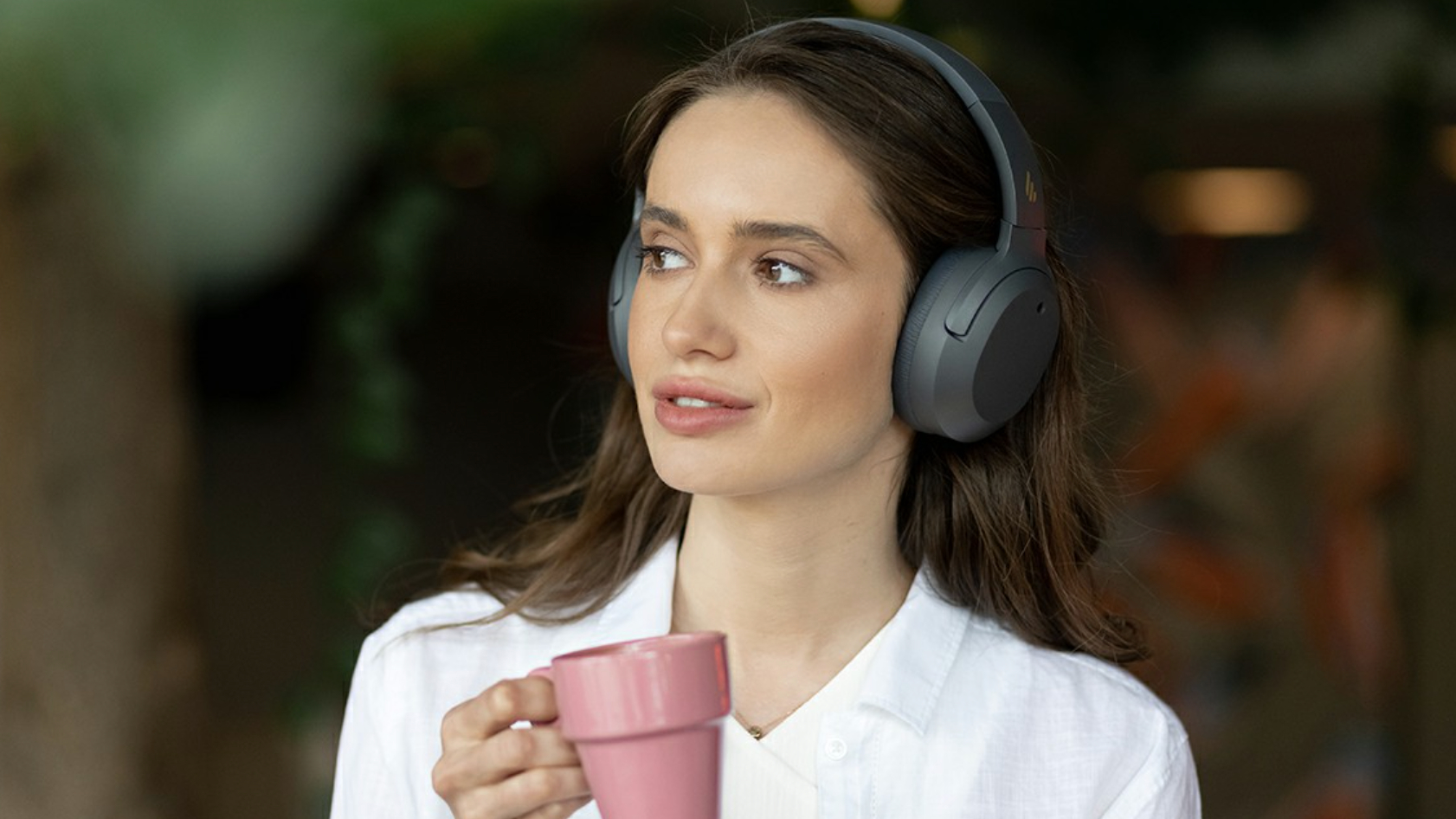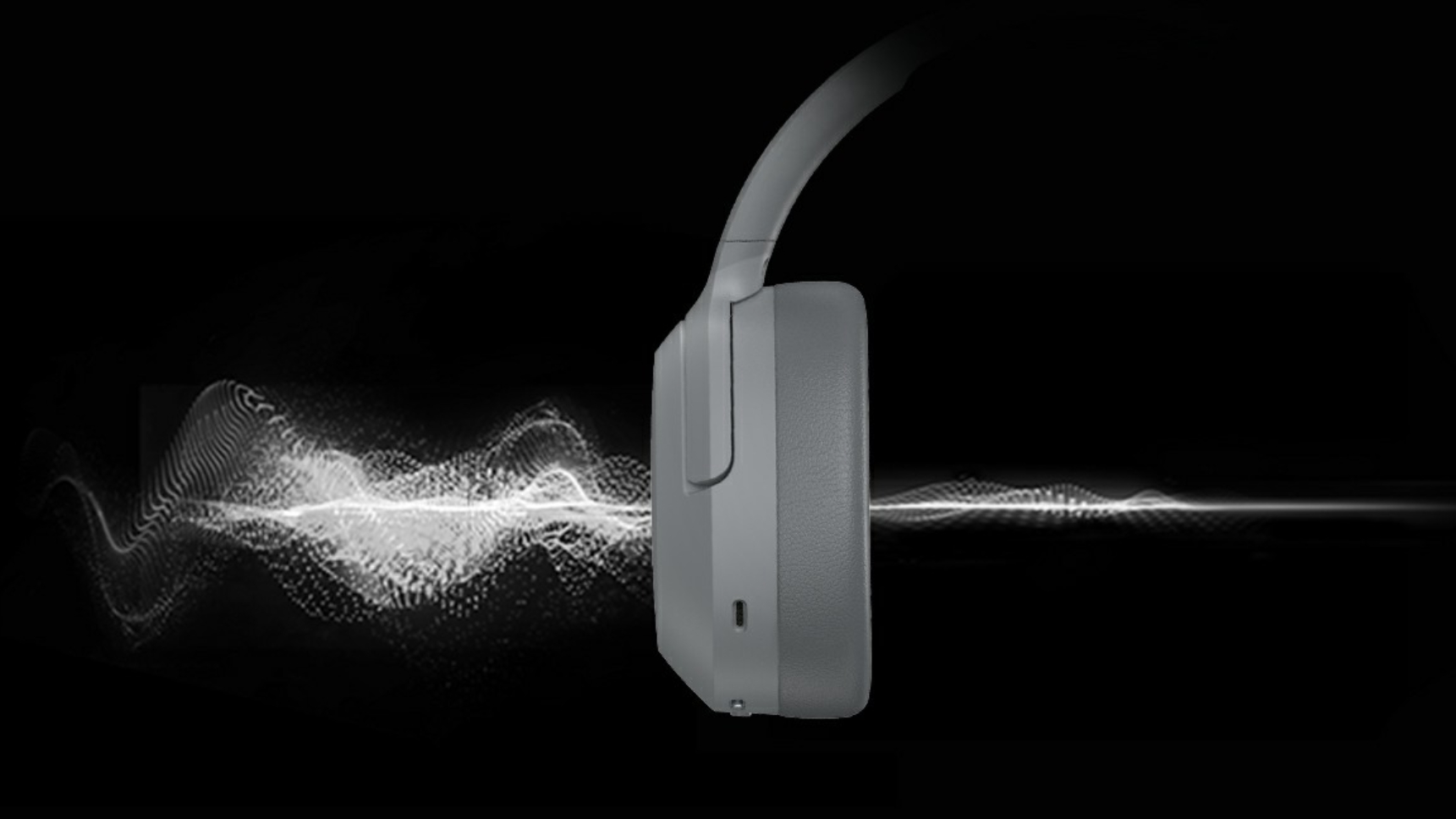Edifier’s cheap ANC over-ears boast 19hrs of extra stamina over Sony WH1000-XM4
LDAC + 49hr battery = superb, on paper at least

How often have you left the house only to be caught short a few hours later by that tell-tale beep or "low battery" warning on even the best wireless headphones and silently cursed yourself for not prioritizing battery life over every other spec on the sheet?
Thanks to the release of its new hybrid ANC and LDAC-toting W820NB Plus headphones, Edifier says you won't have to worry about that for over two days of solid playtime. And that's 19 hours more than the class-leading Sony WH-1000XM4, but for a lot less.
A quick look at our guide to the best headphones shows the Sony WH-1000XM4 review sitting pretty at the top. No surprises there – they're excellent cans. But the LDAC-supporting XM4s initially launched at $349 / £349 / AU$549 and – although they can now be found for quite a bit less owing to their relative age and the arrival of the newer Sony WH-1000XM5 – Edifier's option will set you back less than a quarter of that fee above.
And although Sony's more affordable 2020 noise-cancelling over-ears, the Sony WH-C710N (which have recently been superseded by a newer WH-CH720N variant), now come in at much closer to the new Edifier W820NB's price point, you won't find support for Sony's higher-resolution LDAC codec onboard. Oh, and the battery life is around 35 hours in each affordable Sony model, so Edifier is winning on both counts.
Opinion: if the sound lives up to the spec sheet, for well under $100 Edifier has just hit a home run

Edifier's W820NB Plus (yes, bit of a mouthful) are billed as having an upgrade to the LDAC codec and certified Hi-Res Audio. Furthermore, their "high capacity" battery is rated for nearly 50 hours of battery life, and recharges via USB type-C to offer seven extra hours with just a 10-minute charge. Impressive.
To drill down into those hi-res claims a little, Edifier boasts a transmission bandwidth of up to 990 kilobits per second (kb/s) in the W820NB Plus – in other words, top-tier LDAC support. That is because LDAC supports the transfer of 24-bit, 96kHz audio files via Bluetooth (the closest competing codec is Qualcomm’s aptX HD, which supports 24-bit, 48kHz audio data) but LDAC actually comes with three different types of connection modes.
Stay with me now. Each of these flavors of LDAC offers a different bitrate; 990, 660, and 330 kbps respectively, aka sound-quality priority, normal, and connection-quality priority. So, while slower bitrates are going to affect that 24-bit, 96 kHz quality that LDAC boasts, Edifier's new cans are still a flex for the money.
Get daily insight, inspiration and deals in your inbox
Sign up for breaking news, reviews, opinion, top tech deals, and more.
In terms of hardware, the W820NB Plus boast titanium coated composite diaphragm 40mm drivers and also pack hybrid ANC rated for a surprising 38dB noise nixing claim.
While Edifier has yet to truly wow us in the headphone department, the company does have audio prowess – see our Edifier MR4 studio monitors review and Edifier G2000 computer speakers review for reference.
The new Edifier W820NB Plus headphones have just launched in Blue, Green, Gray or Ivory colorways (in addition to the more traditional Black, of course) and are available on Amazon for just $79.99 / £79.99 / around AU$120.
And with these claims at that price, they may well be receiving a coveted invite to our best noise-cancelling headphones roundup, very soon. Watch this space.

Becky became Audio Editor at TechRadar in 2024, but joined the team in 2022 as Senior Staff Writer, focusing on all things hi-fi. Before this, she spent three years at What Hi-Fi? testing and reviewing everything from wallet-friendly wireless earbuds to huge high-end sound systems. Prior to gaining her MA in Journalism in 2018, Becky freelanced as an arts critic alongside a 22-year career as a professional dancer and aerialist – any love of dance starts with a love of music. Becky has previously contributed to Stuff, FourFourTwo and The Stage. When not writing, she can still be found throwing shapes in a dance studio, these days with varying degrees of success.